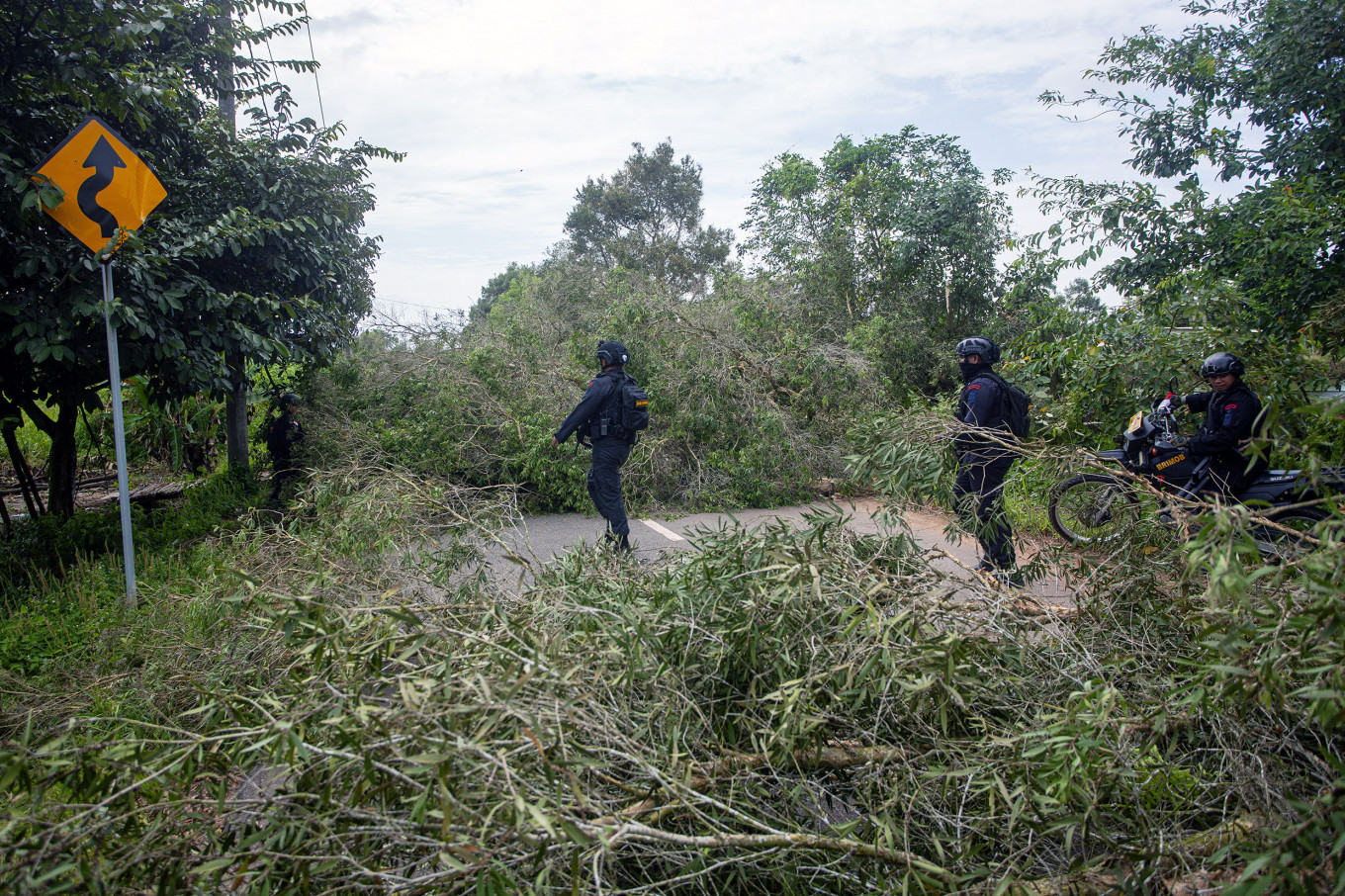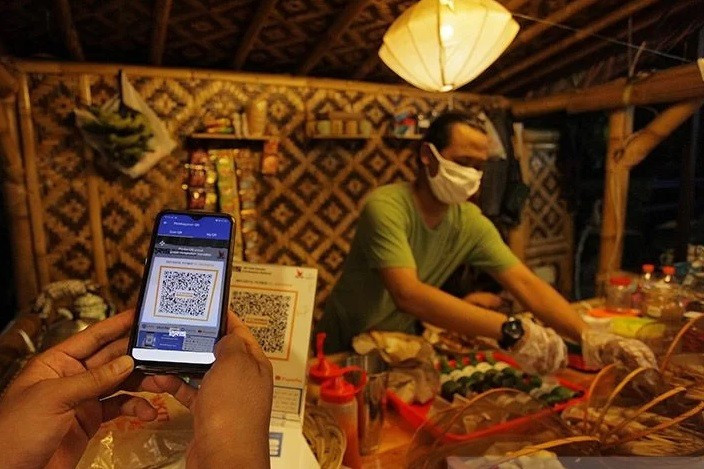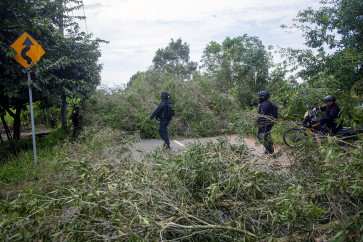Popular Reads
Top Results
Can't find what you're looking for?
View all search resultsPopular Reads
Top Results
Can't find what you're looking for?
View all search resultsRempang unrest: A wake-up call for a rights-based planned relocation framework
Indonesia has a long and troubling history of forced evictions, particularly of indigenous people and communities.
Change text size
Gift Premium Articles
to Anyone
O
ver the past few weeks, the public has been stunned by the state-led forced evictions on Rempang Island, which will impact the lives of 7,500 local inhabitants, including indigenous peoples and local communities (IPLCs) who have resided in the 16 kampung tua (ancient villages) since before Indonesia gained independence in 1945.
These communities are being compelled to leave their homes due to the government's intention to transform the island into an Eco-City, a development that is set to attract a substantial investment of US$11.5 billion from various Chinese companies. The project aims to create 35,000 job opportunities.
Unfortunately, as is often the case in other agrarian conflicts, the local inhabitants and IPLCs do not possess legal ownership of the land, despite having lived there for five or six generations.
Indonesia has a long and troubling history of forced evictions, particularly of IPLCs. The recurring narrative has consistently revolved around compelling people to relocate in the name of development and the supposed greater good. For instance, in the 1970s, the government initiated a nationwide program known as the Resettlement of Isolated Communities Program (P2KMT). This program aimed to “develop” IPLCs by relocating them to new areas with improved access to health care, education and economic opportunities.
However, it was executed in a top-down and didactic manner, with little regard for socio-anthropological considerations. As an example, many Orang Rimba, who are a nomadic and hunter-gatherer community native to Bukit Duabelas National Park, were forcibly transitioned to a sedentary agricultural lifestyle. Consequently, many Orang Rimba communities chose to return to their original forest homes, irrespective of the facilities provided in the new locations.
Furthermore, the government often employs resettlement as part of disaster-risk reduction strategies. Following the devastating 2004 Indian Ocean tsunami, for instance, the government decided to relocate coastal IPLCs on Siberut Island to higher, mountainous areas on the island. Regrettably, this intervention exposed IPLCs to new risks, including earthquakes and food insecurity, as they were not adequately supported in gradually transitioning their livelihoods from fishing to farming. Consequently, when a 6.9 magnitude earthquake struck the island in 2009, the relocated communities suffered the highest casualties compared with local communities.
The aforementioned examples illustrate how the government has historically and continues to approach relocation through the lens of the built environment and a physical-material paradigm. This perspective perceives relocation as primarily the physical transfer of communities from one location to another.



















